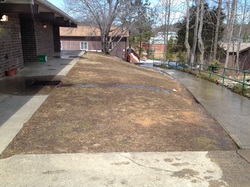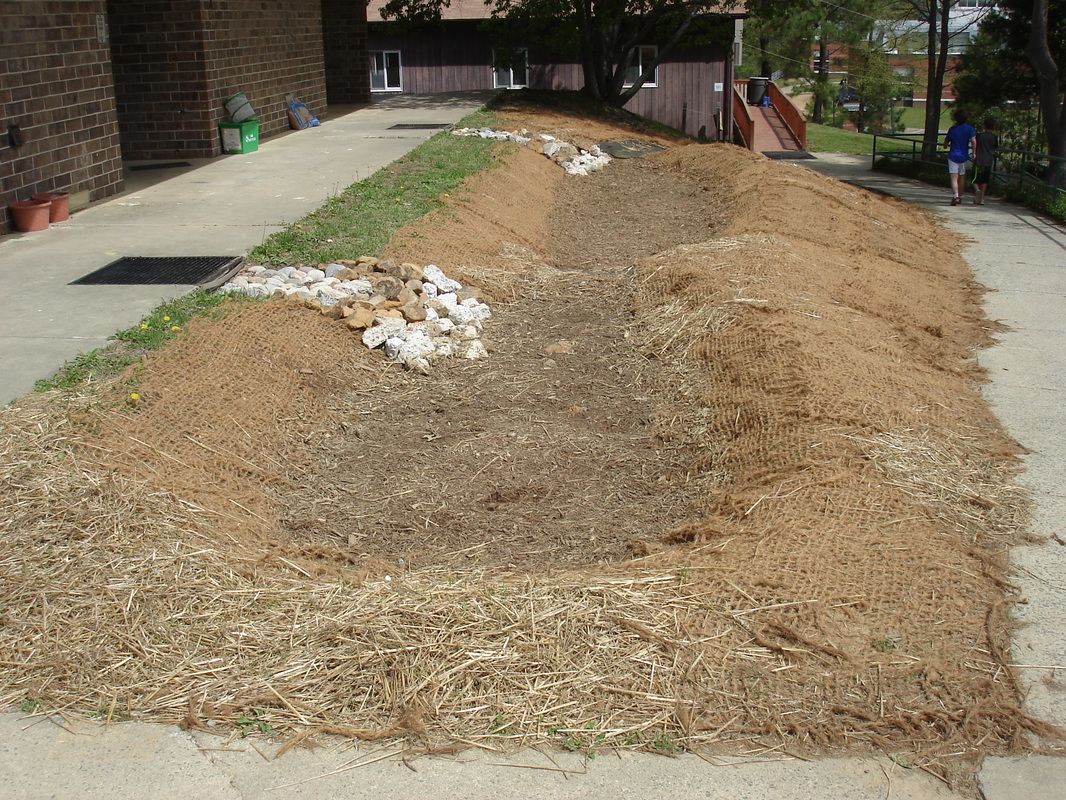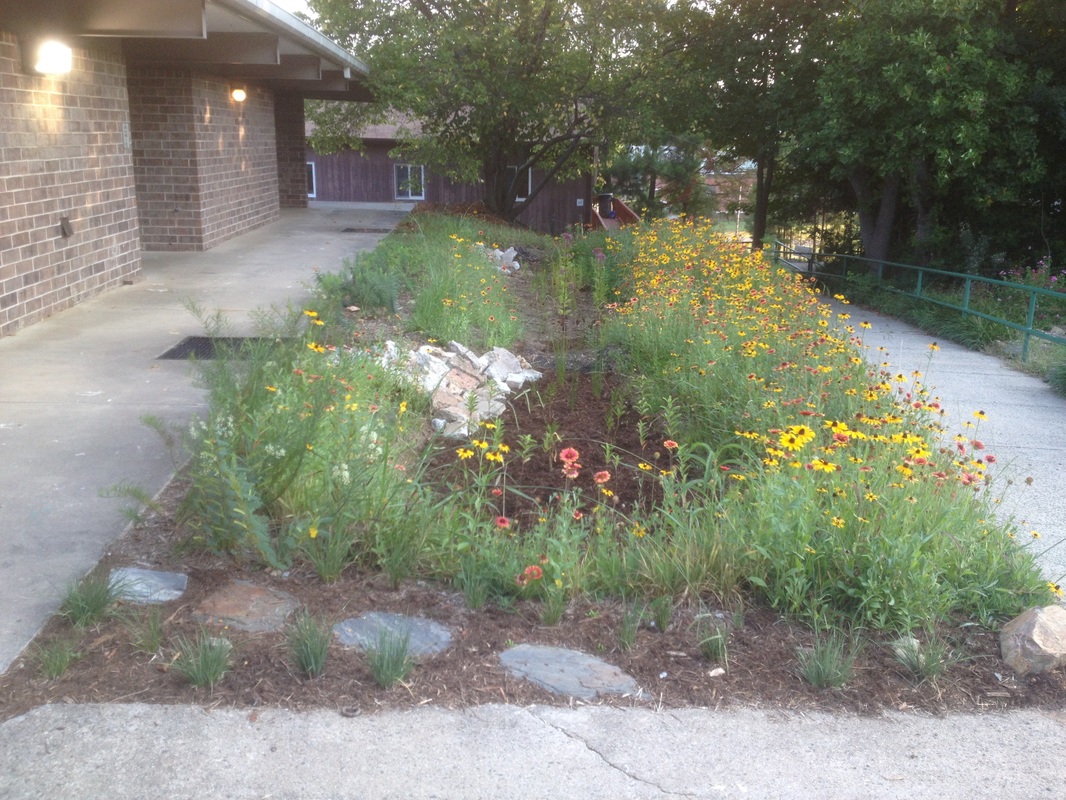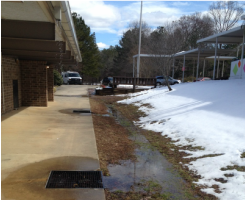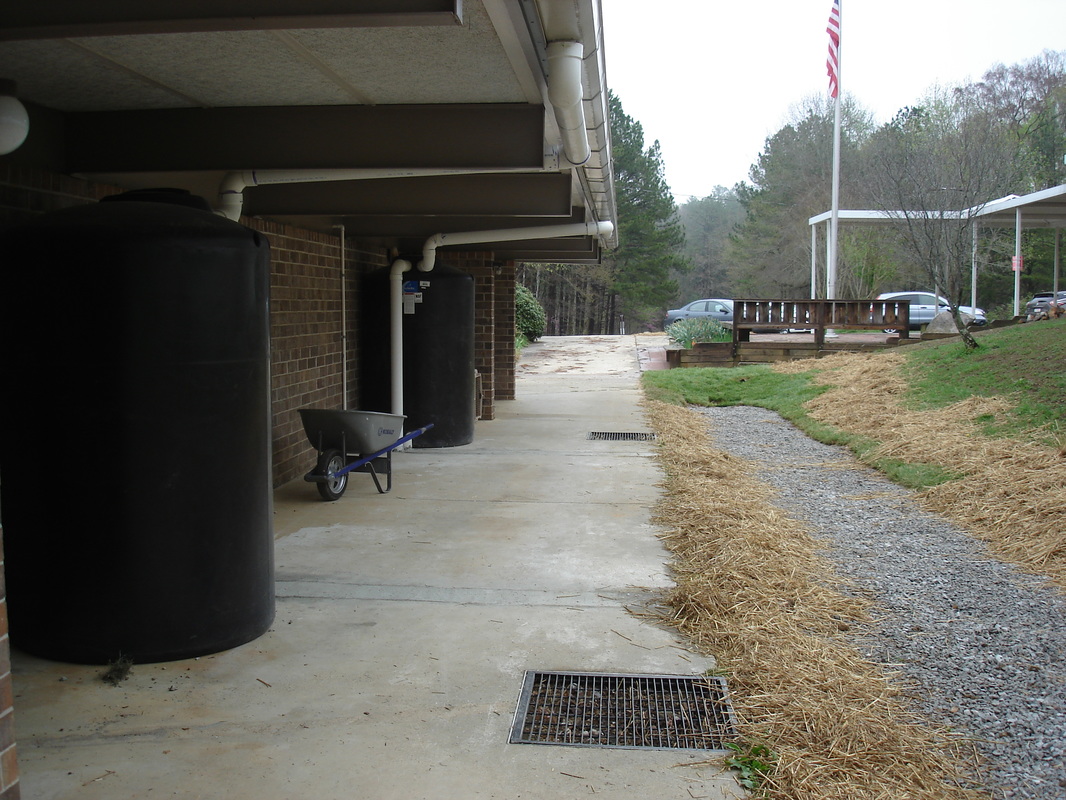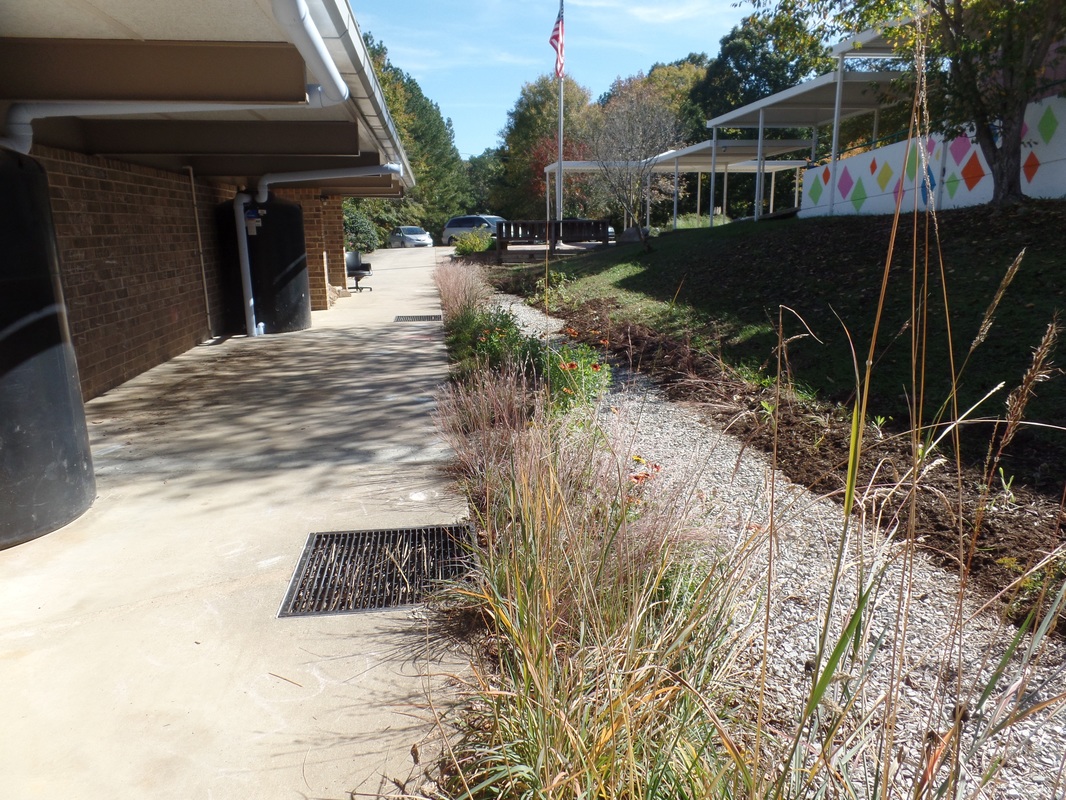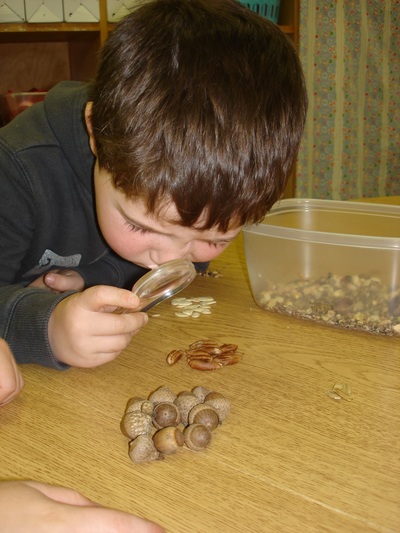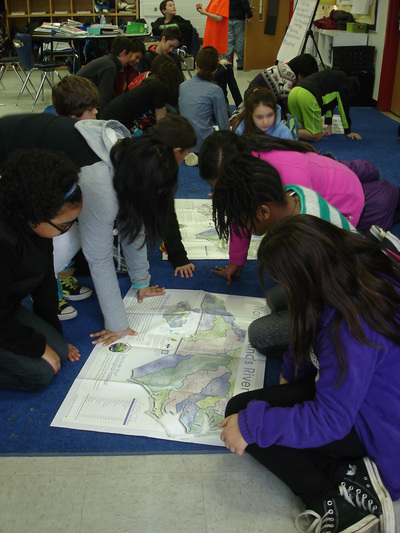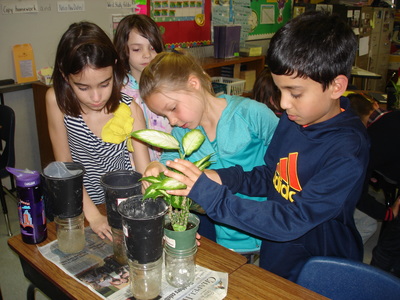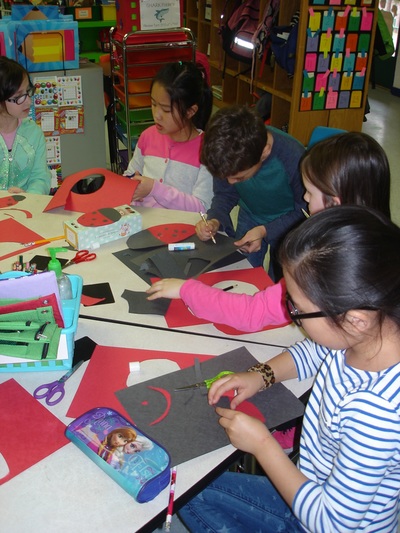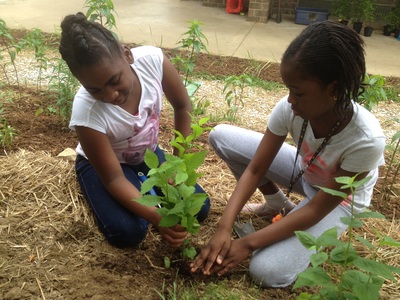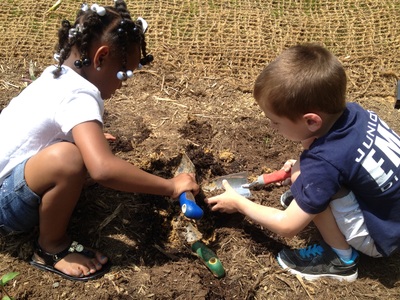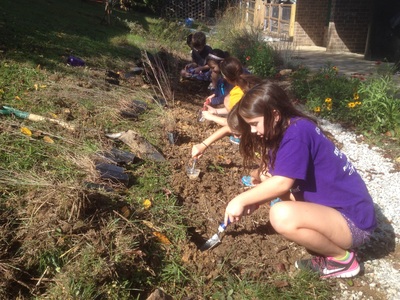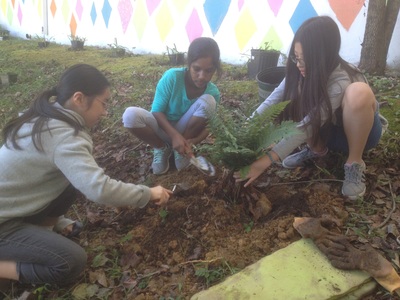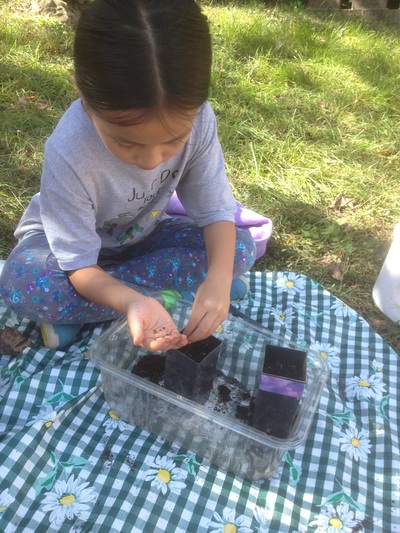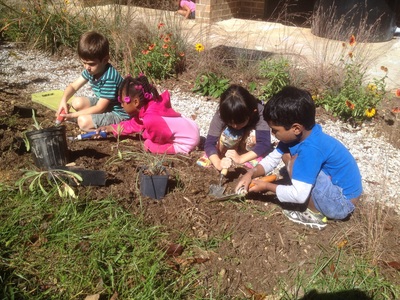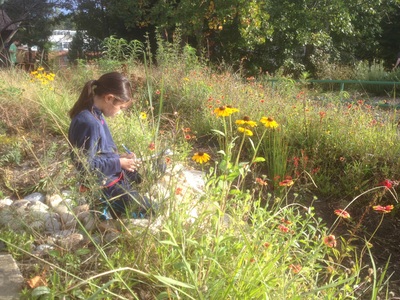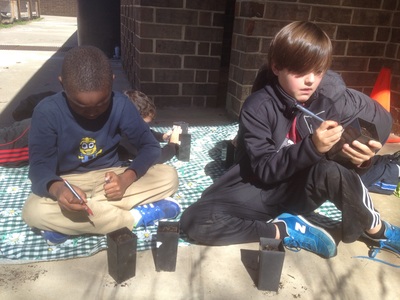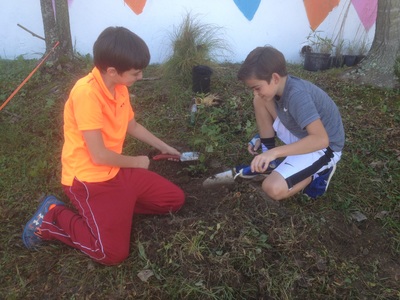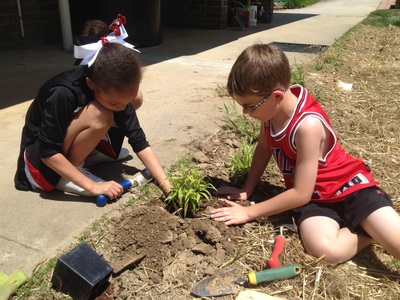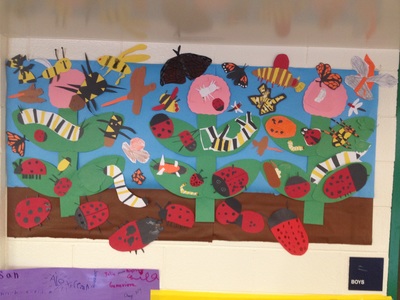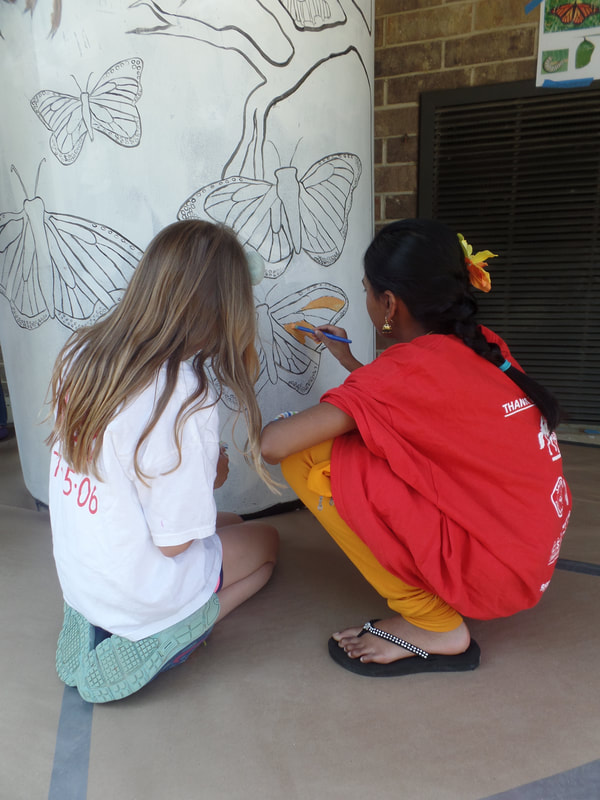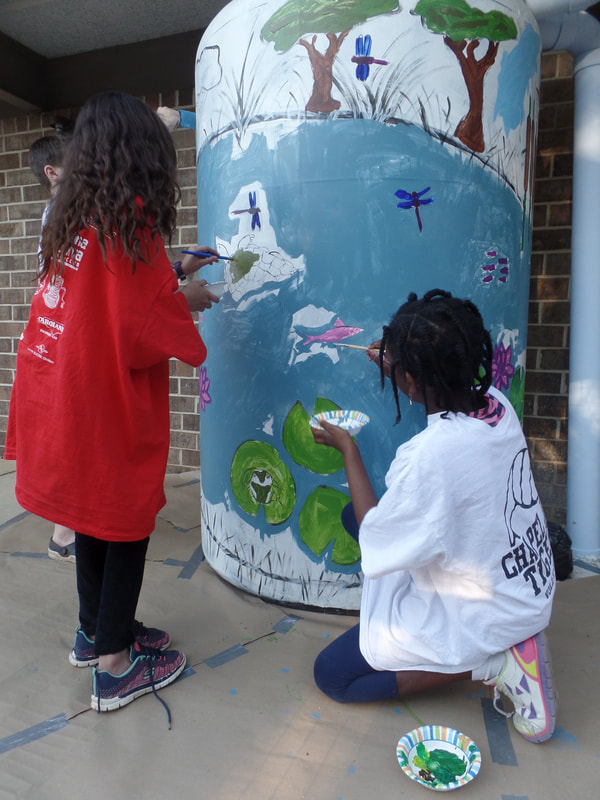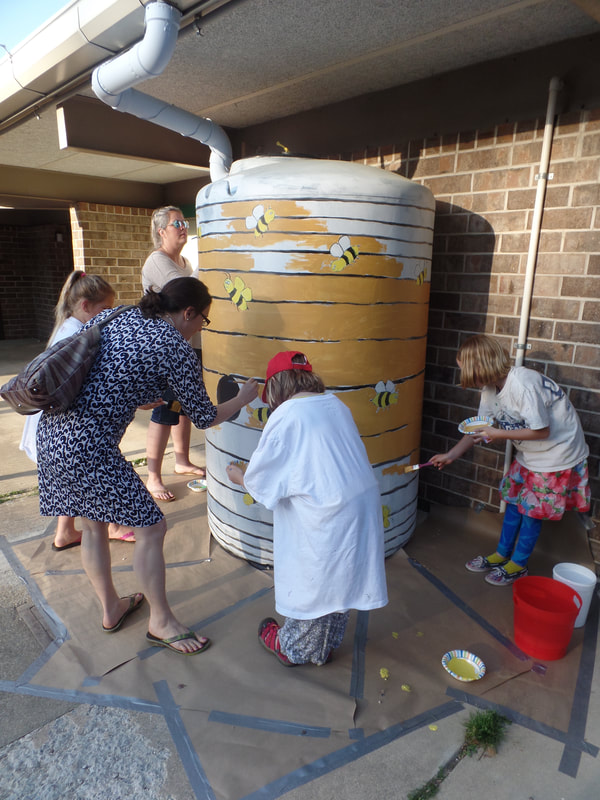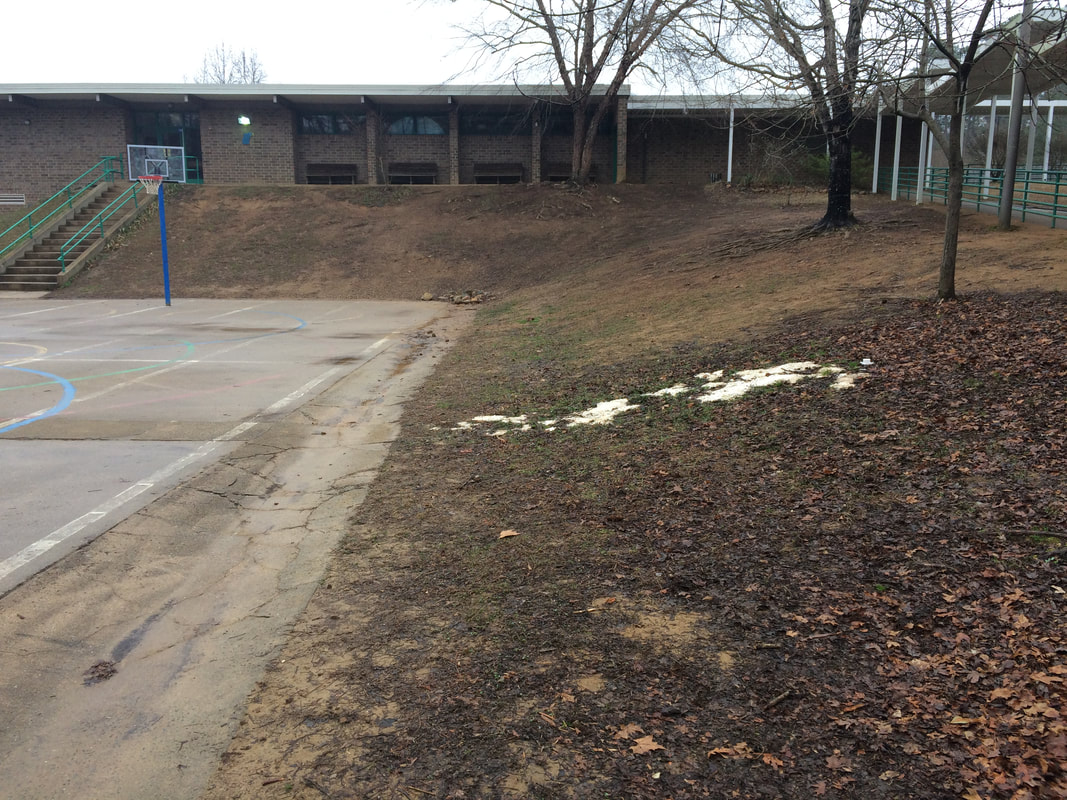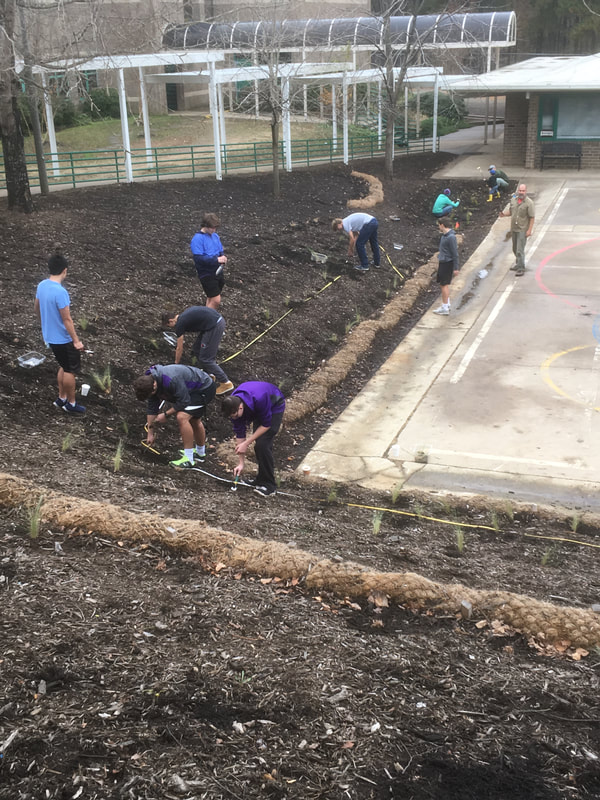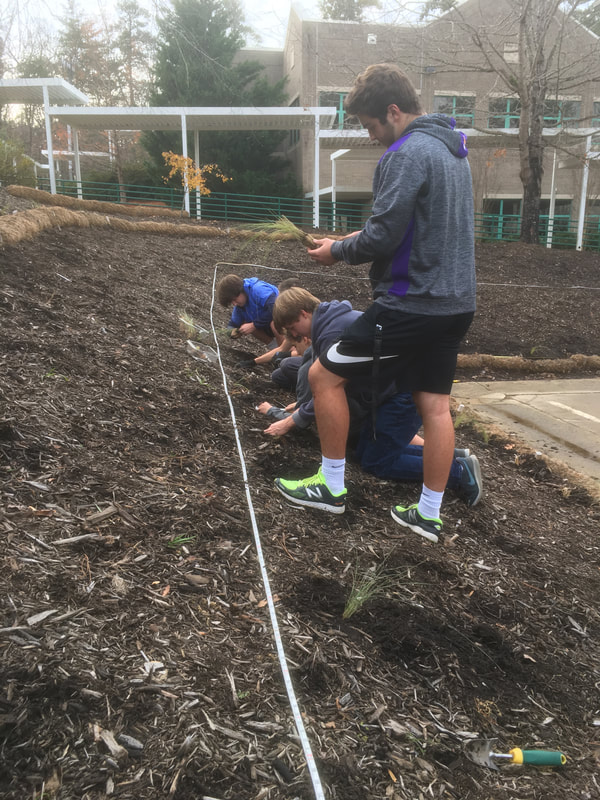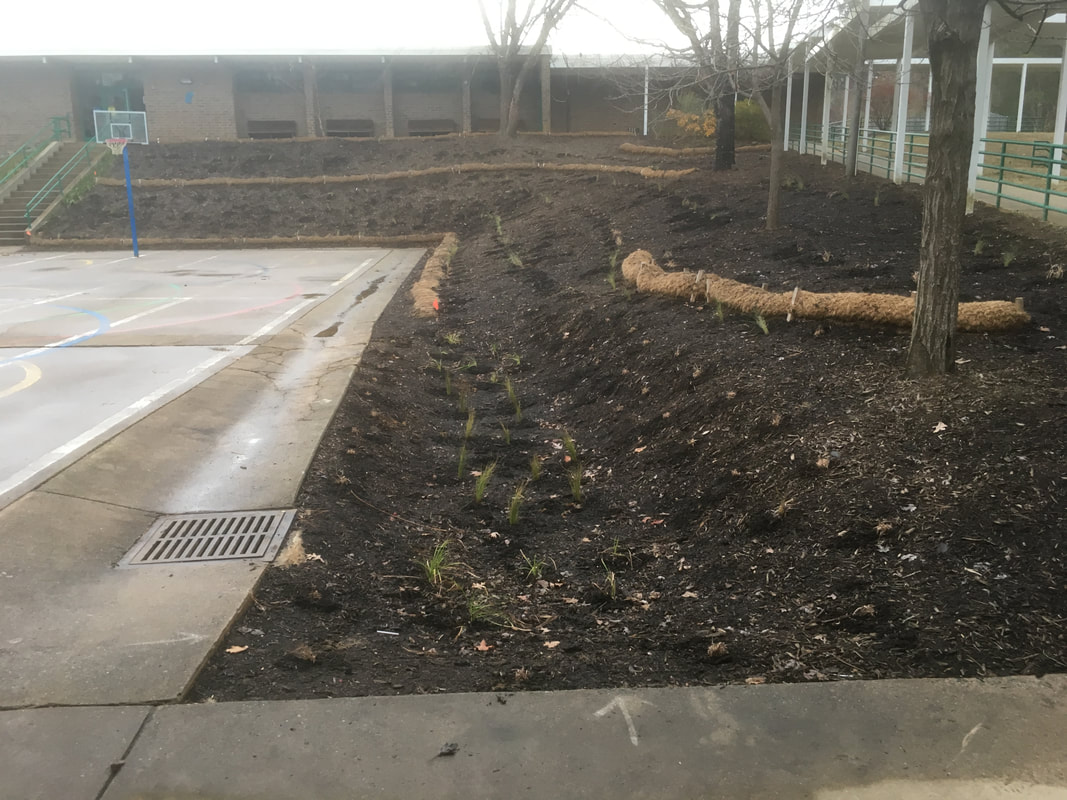Seawell Elementary School
Lands and Waters South has been working with Seawell Elementary School in Chapel Hill since 2014. In 2016, we were awarded an Honorable Mention from the Greater Triangle Stewardship Development Awards Program for "examplary water quality protection, vegetation protection & enhancement, and community outreach and education." We were honored to receive this distinction and look forward to continuing our work at Seawell.
Water Catchment at Seawell
Thanks to The Jandy Ammons Foundation, the Captain Planet Foundation, and Lowes Toolbox for Education for providing the funding for a water catchment system at Seawell, and to NC State Coopertive Extension and Chapel Hill-Carrboro City Schools for partnering with us on it!
A 200-square foot rain garden collects stormwater runoff from two downspouts off the roof of a building at Seawell. The garden is sized to collect all of the rain that falls during a 1" storm. Before the garden was created, runoff flowed down a hill in front of the building, eroding the hill. Now, the plants and soil in the garden absorb and clean the runoff, filtering out pollutants. Any runoff that might leave the garden reaches a storm drain at the base of the hill at a much slower rate than before, which helps prevent Bolin Creek from being eroded.
Stormwater runoff that once flooded buildings at Seawell now flows off of the roof into four cisterns that can hold a total of 2,000 gallons of water, which is the amount they collect in a 1" storm. Harvested water is used for watering animals in the school's critter corner and for irrigation. Overflow is sent to a three-foot deep gravel infiltration trench, which allows the water to slowly percolate back into the ground or slowly reach a storm drain that will send it to Bolin Creek. By slowing the water's flow, we protect the creek from being eroded and provide the hot rooftop water time to cool down, thereby protecting aquatic life sensitive to temperature increases in the creek.
To ensure students understood the purpose of the project, classes received hands-on lessons on topics including habitats, ecosystems, migration, watersheds, stormwater runoff, and seed dispersal. They then planted species native to the Piedmont along the infiltration trench and in and around the rain garden. These native plants provide habitat for wildlife (particularly pollinators like bees and butterflies) and prevent soil erosion. Students and parents also worked together to create murals on the four cisterns, each with a different habitat theme. Classes have begun to use the area as a “living laboratory" for everything from studying insects to learning about the Fibonacci sequence.
Stabilizing Hills at Seawell
Thanks to Orange Soil and Water and Chapel Hill-Carrboro City Schools for providing the funding for a project to stabilize a badly eroded hill at Seawell, and thanks to students from Carrboro High School who braved the cold to help us plant!
285 linear feet of mulch-filled coir logs create terraces on this badly eroded hill. Wood chips cover the soil, adding a layer of protection from rainwater. Native bunch grasses like little bluestem (Schizachyrium scoparium) and muhly grass (Muhlenbergia capillaris) planted throughout the hill will reproduce and spread over time. The plants' roots, which stretch down considerably farther than turf grass, will hold the hill's soil in place as the coir logs biodegrade.
